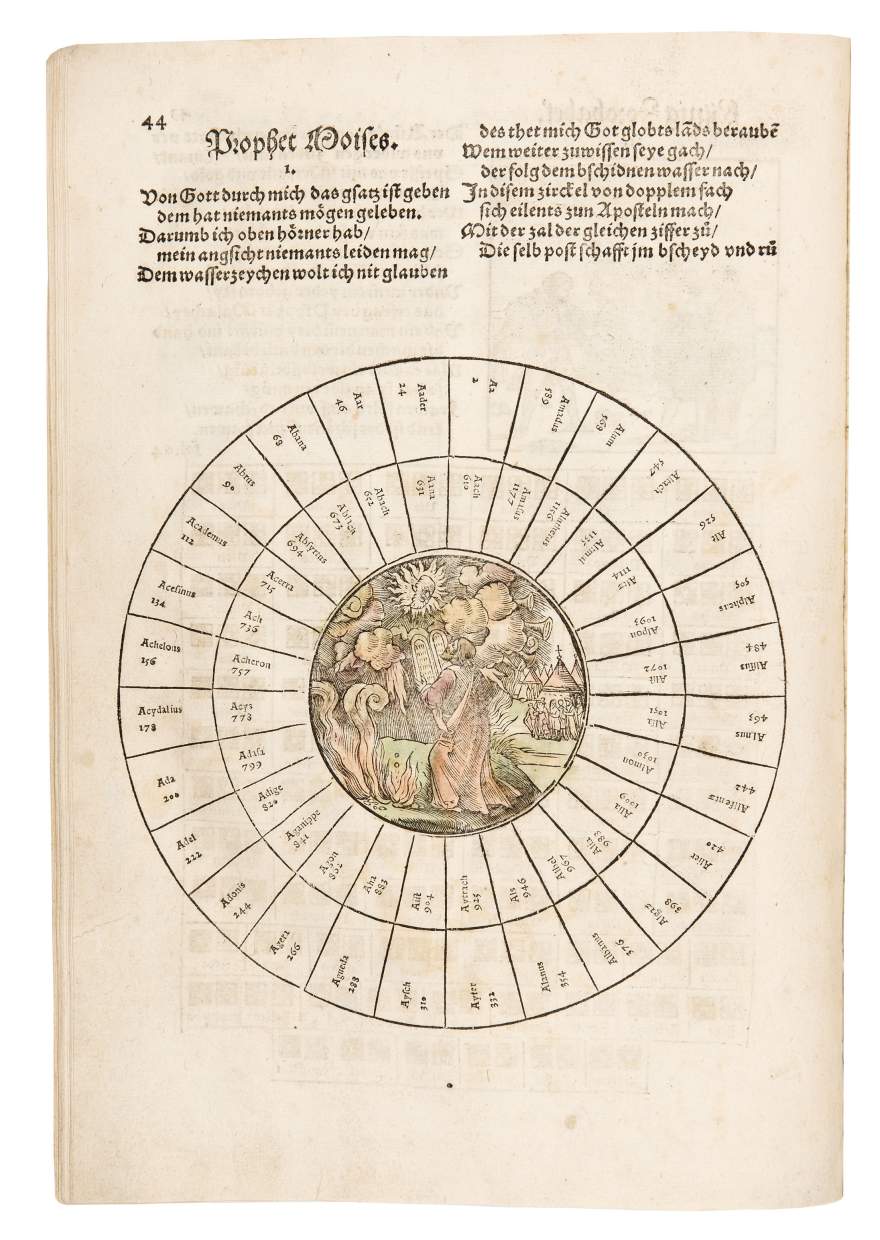

Paul Pampst, Looßbuch zu ehren der Römischen, Ungerischen unnd Böhemischen Künigin.
Strasbourg: Balthasar Beck, 1546.
First edition.


Paul Pampst, Looßbuch zu ehren der Römischen, Ungerischen unnd Böhemischen Künigin. Strasbourg: Balthasar Beck, 1546.
First edition.


Paul Pampst, Looßbuch zu ehren der Römischen, Ungerischen unnd Böhemischen Künigin. Strasbourg: Balthasar Beck, 1546.
First edition.


Paul Pampst, Looßbuch zu ehren der Römischen, Ungerischen unnd Böhemischen Künigin. Strasbourg: Balthasar Beck, 1546.
First edition.

This work is now sold.
In the Middle Ages and the Renaissance, fortune-telling books were quite popular in German-speaking regions. They mainly drew upon sayings from the Old Testament to answer questions about life. They were also supposed to be quite entertaining. The author of the present text, Paul Pambst, a Premonstratensian monk from Strasbourg, points out in his prologue that Christians should not trust predictions, and that this book is supposed to entertain the reader in order to distract him from bad thoughts.
The Loosbuch starts with twenty-one questions arranged around a wheel of fortune and referring to personal fate and the future. For example, will a sick person will get well again, should someone get married, or generally, will someone’s particular plan succeed? According to the number of the question, the reader is lead to various authorities from the Old Testament, ‘fathers’, ‘heroes’, and ‘kings’, with each providing a dice's table. The combinations of the dice then correspond to prophets and spheres with names of rivers, and then finally lead to the answers, which are given by apostles, saints, and planets.
Although this is an independent work, there is no doubt that the idea of this book was taken from Lorenzo Spirito’s Libro della ventura (Book of Fortune, or Book of Fate), originally written in Italian in 1482. Spirito‘s work enjoyed wide diffusion far into the 16th century as well as several translations. It thus founded the popular genre of fortune-telling books, to which the present book belongs.
The edition at hand is dedicated to queen Anna of Bohemia and Hungary, wife of Ferdinand I, and daughter of Ladislaus VI and Anne of Foix. The title woodcut includes Queen Anna's coat of arms, and the opening woodcut of the prologue depicts an author presenting his book to the queen.
The woodcuts in this book are attributed to Heinrich Vogtherr the Elder and Hans Beham or a follower. Every section is divided into twenty-one chapters, each of which is introduced by a woodcut showing the patriarchs from Adam to Jesse, heroes from Joshua to Adonyas, kings from Saul to Zoroabel, prophets from Moses to Malachi, saints from St. Peter to St. Luke, the seven Planets, and Drackenkopff.



